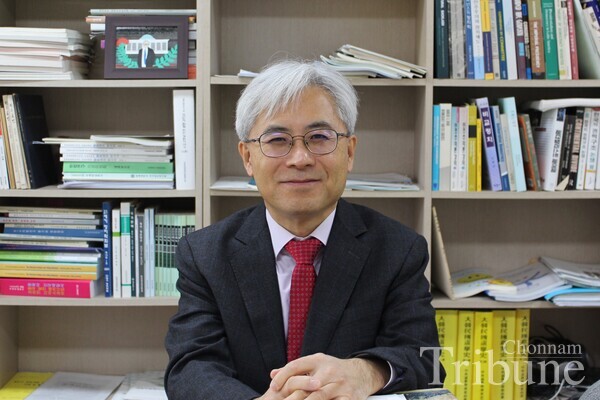
Q. Why are students unconcerned about campus politics?
One of the factors that causes students’ low political interest is that student councils at CNU continue operating traditionally from the past. They act as a hindrance to getting active political engagements from students. In fact, from the perspective of the councils, students’ indifference and low participation are more convenient operationally, but ultimately it leads to a sort of mutual ethical laxity.
Q. How can the university improve the current system for better campus politics?
It would be worth trying to change the method of participating in elections. For example, we can utilize an electoral college, organizing debates within each college or department to elect representatives and selecting the student council president, which is called the caucus system adopted by some states in the United States. It is a form of indirect election, but it would be inaccurate to consider only direct elections as democracy. Students should keep trying different strategies and figure out the one that best suits them, to invigorate intra-campus political communication and participation.
Q. What are the ways to enhance political awareness among students?
Beyond system reform, informal efforts are also necessary. Simply arguing to take part in politics is not enough. It is crucial to actively inform each other what the major issues are about in specific affairs, such as pledges of student council candidates, and constantly conduct campaigns to raise consciousness. It is needed not just to activate traditional ways of promotion, like using placards, but to create an effective channel for students to easily approach and understand such information.
Q. What is the fundamental reason for young political indifference?
Compared to other countries, such as the United States and European countries, Korea lacks education on politics. In the case of Germany, the federal government has an affiliated organization in charge of political education, encouraging students to discuss various issues in politics. We do teach students how laws and institutions are organized, but there is no chance to learn about ideological definitions or the importance of exercising the right to vote, especially in their adolescence. As a consequence, they are unaware of how politics affects their lives. We need to solidify the educational system from basic to advanced levels.
Q. What can the university do to strengthen its role in political education?
Students lack conversations concerning politics. To be more precise, they do not have any places within the campus to exchange their opinions. Creating clubs for each political party and occasionally organizing party debates would enable discussions on various issues, allowing each party to articulate their perspectives and arguments. Vitalizing such activities on campus would not only enhance youth participation as electorates but also contribute to laying the foothold for the growth of young politicians.
By Song Su-min, Editor

